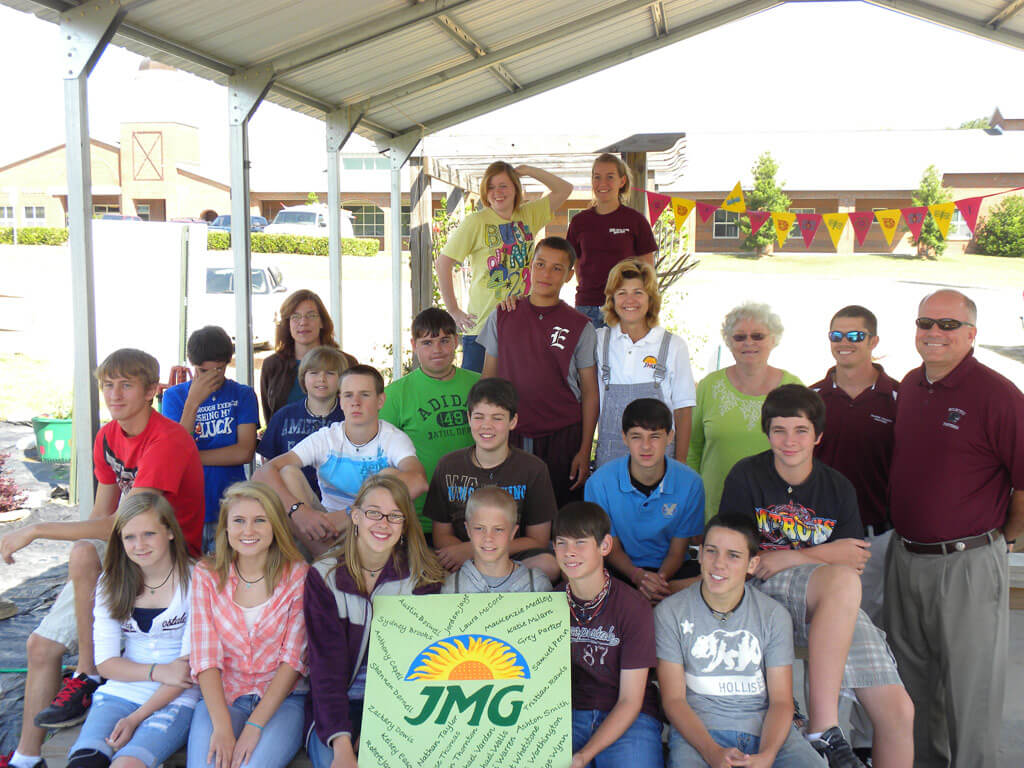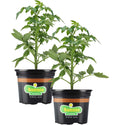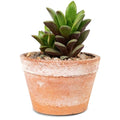Here's a surefire way to teach your child how to do better in school, become more involved in the community, develop initiative, and help people in need: Enroll him or her in your local Junior Master Gardener program.
Through hands-on activities, fun group projects, meaningful community service—and, yes, work in the garden—the program helps kids develop a love of gardening, respect for the environment, and a passion for giving back to world in which they live. Around a million kids from across the country participate every year, mostly through school programs, but also through 4-H clubs, home school classes, summer camps, and more.
There are two program levels, one designed for 3rd through 5th grades, the other for 6th through 8th grades. But they are presented in such a way that they can be adapted for kids from preschool age all the way through high school. "It's a great learning environment," says Luci Davis, Junior Master Gardener coordinator for the state of Alabama. "The kids get their hands dirty and learn without even realizing that they're learning."
Equally important is the community service aspect of the program. Kids do a wide variety of "service learning projects" such as raising vegetables to donate to the local soup kitchen or nursing home, or doing clean-up at the school. "The program teaches kids to give back," says Davis.
Sounds great, right? Here's how to get your child's school involved: Visit jmgkids.us (or encourage your child's teacher to do so) for details on getting started, including information on teacher training in your state. (There are programs in all 50 states, plus parts of Asia, Latin America, and Canada.) At the training, teachers learn how to integrate the program into their existing lesson plans, and to do it in a way that gives them confidence even if they've never gardened before. When the program gets underway, adult Master Gardeners are brought in to answer questions and just generally help out. "We don't want teachers to feel like they're on an island trying to do this by themselves," says Whittlesey.
The school doesn't even need to have a garden. "There's a lot you can grow in containers," Whittlesey says. And while lots of kids complete the program and become certified Junior Master Gardeners (it's a big commitment, as each child must complete 45 group and 45 individual activities), many teachers simply choose to do the activities and projects that interest them and their students.
Either way, the program works best when the whole school gets involved. At Castlen Elementary School in Grand Bay, Alabama, for example, each class is required by the principal to spend at least an hour a week out in the garden. Each classroom is registered as a Junior Master Gardener group, and everyone works together to keep the garden beautiful. It's a huge collaboration, and the kids thrive on it.
Whittlesey hears many of inspiring stories about the effect the Junior Master Gardener program has on the kids who participate. Her favorite is of Andreas, a son of immigrant farmers in the south Rio Grande area of Texas, who took part in the program a few years back. His home lacked both water or electricity, but it had one priceless amenity: Andreas' Junior Master Gardener completion certificate, proudly displayed on the wall. That certificate gave him the confidence to believe that he could do whatever he set his mind to, and that he could make a difference in the world. Andreas is now in college—and who knows what heights he might reach?
All because of a garden.
"So many kids now haven't had the experience of really being around plants or growing things. The program is a way for them to begin to understand that their food comes from the ground, and that they can be a part of growing things that will help the community."
Lisa Whittlesey, a Texas A&M Extension Program Specialist who coordinates the International Junior Master Gardener Program
Bonnie Plants is a sponsor of the Alabama Junior Master Gardener program.
Article written by Su Reid-St. John.









 Herbs
Herbs
 Vegetables
Vegetables
 Fruit
Fruit
 Flowers
Flowers
 Succulents
Succulents


